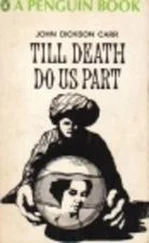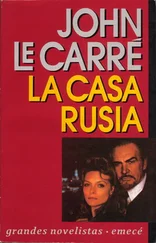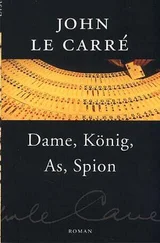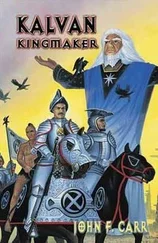John le Carré - A Murder of Quality
Здесь есть возможность читать онлайн «John le Carré - A Murder of Quality» весь текст электронной книги совершенно бесплатно (целиком полную версию без сокращений). В некоторых случаях можно слушать аудио, скачать через торрент в формате fb2 и присутствует краткое содержание. Жанр: Триллер, на английском языке. Описание произведения, (предисловие) а так же отзывы посетителей доступны на портале библиотеки ЛибКат.
- Название:A Murder of Quality
- Автор:
- Жанр:
- Год:неизвестен
- ISBN:нет данных
- Рейтинг книги:5 / 5. Голосов: 1
-
Избранное:Добавить в избранное
- Отзывы:
-
Ваша оценка:
- 100
- 1
- 2
- 3
- 4
- 5
A Murder of Quality: краткое содержание, описание и аннотация
Предлагаем к чтению аннотацию, описание, краткое содержание или предисловие (зависит от того, что написал сам автор книги «A Murder of Quality»). Если вы не нашли необходимую информацию о книге — напишите в комментариях, мы постараемся отыскать её.
A Murder of Quality — читать онлайн бесплатно полную книгу (весь текст) целиком
Ниже представлен текст книги, разбитый по страницам. Система сохранения места последней прочитанной страницы, позволяет с удобством читать онлайн бесплатно книгу «A Murder of Quality», без необходимости каждый раз заново искать на чём Вы остановились. Поставьте закладку, и сможете в любой момент перейти на страницу, на которой закончили чтение.
Интервал:
Закладка:
Foreword
There are probably a dozen great schools of whom it will be confidently asserted that Carne is their deliberate image. But he who looks among their common rooms for the D'Arcys, Fieldings, and Hechts will search in vain.
Chapter 1—Black Candles
The greatness of Carne School has been ascribed by common consent to Edward VI, whose educational zeal is ascribed by history to the Duke of Somerset. But Carne prefers the respectability of the monarch to the questionable politics of his adviser, drawing strength from the conviction that Great Schools, like Tudor Kings, were ordained in Heaven.
And indeed its greatness is little short of miraculous. Founded by obscure monks, endowed by a sickly boy king, and dragged from oblivion by a Victorian bully, Carne had straightened its collar, scrubbed its rustic hands and face and presented itself shining to the courts of the twentieth century. And in the twinkling of an eye, the Dorset bumpkin was London's darling: Dick Whittington had arrived. Carne had parchments in Latin, seals in wax, and Lammas Land behind the Abbey. Carne had property, cloisters and woodworm, a whipping block and a line in the Doomsday Book—then what more did it need to instruct the sons of the rich?
And they came; each Half they came (for terms are not elegant things), so that throughout a whole afternoon the trains would unload sad groups of black-coated boys on to the station platform. They came in great cars that shone with mournful purity. They came to bury poor King Edward, trundling handcarts over the cobbled streets or carrying tuck boxes like little coffins. Some wore gowns, and when they walked they looked like crows, or black angels come for the burying. Some followed singly like undertakers' mutes, and you could hear the clip of their boots as they went. They were always in mourning at Carne; the small boys because they must stay and the big boys because they must leave, the masters because respectability was underpaid; and now, as the Lent Half (as the Easter term was called) drew to its end, the cloud of gloom was as firmly settled as ever over the grey towers of Carne.
Gloom and the cold. The cold was crisp and sharp as flint. It cut the faces of the boys as they moved slowly from the deserted playing fields after the school match. It pierced their black topcoats and turned their stiff, pointed collars into icy rings round their necks. Frozen, they plodded from the field to the long walled road which led to the main tuck shop and the town, the line gradually dwindling into groups, and the groups into pairs. Two boys who looked even colder than the rest crossed the road and made their way along a narrow path which led towards a distant but less populated tuck shop.
'I think I shall die if ever I have to watch one of those beastly rugger games again. The noise is fantastic,' said one. He was tall with fair hair, and his name was Caley.
'People only shout because the dons are watching from the pavilion,' the other rejoined; 'that's why each house has to stand together. So that the house dons can swank about how loud their houses shout.'
'What about Rode?' asked Caley. 'Why does he stand with us and make us shout, then? He's not a house don, just a bloody usher.'
'He's sucking up to house dons all the time. You can see him in the quad between lessons buzzing round the big men. All the junior masters do.' Caley's companion was a cynical red-haired boy called Perkins, Captain of Fielding's house.
'I've been to tea with Rode,' said Caley.
'Rode's hell. He wears brown boots. What was tea like?'
'Bleak. Funny how tea gives them away. Mrs Rode's quite decent, though—homely in a plebby sort of way: doyleys and china birds. Food's good: Women's Institute, but good.'
'Rode's doing Corps next Half. That'll put the lid on it. He's so keen , bouncing about all the time. You can tell he's not a gentleman. You know where he went to school?'
'No.'
'Branxome Grammar. Fielding told my Mama, when she came over from Singapore last Half.'
'God. Where's Branxome?'
'On the coast. Near Bournemouth. I haven't been to tea with anyone except Fielding.' Perkins added after a slight pause, 'You get roast chestnuts and crumpets. You're never allowed to thank him, you know. He says emotionalism is only for the lower classes. That's typical of Fielding. He's not like a don at all. I think boys bore him. The whole house goes to tea with him once a Half, he has us in turn, four at a time, and that's about the only time he talks to most men.'
They walked on in silence for a while until Perkins said:
'Fielding's giving another dinner party tonight.'
'He's pushing the boat out these days,' Caley replied, with disapproval. 'Suppose the food in your house is worse than ever?'
'It's his last Half before he retires. He's entertaining every don and all the wives separately by the end of the Half. Black candles every evening. For mourning. Hells extravagant.'
'Yes. I suppose it's a sort of gesture.'
'My Pater says he's a queer.'
They crossed the road and disappeared into the tuck shop, where they continued to discuss the weighty affairs of Mr Terence Fielding, until Perkins drew their meeting reluctantly to a close. Being a poor hand at science, he was unfortunately obliged to take extra tuition in the subject.
The dinner party to which Perkins had alluded that afternoon was now drawing to a close. Mr Terence Fielding, senior housemaster of Carne, gave himself some more port and pushed the decanter wearily to his left. It was his port, the best he had. There was enough of the best to last the Half—and after that, be damned. He felt a little tired after watching the match, and a little drunk, and a little bored with Shane Hecht and her husband. Shane was so hideous. Massive and enveloping, like a faded Valkyrie. All that black hair. He should have asked someone else. The Snows for instance, but he was too clever. Or Felix D'Arcy, but D'Arcy interrupted. Ah well, a little later he would annoy Charles Hecht, and Hecht would get in a pet and leave early.
Hecht was fidgeting, wanting to light his pipe, but Fielding damn well wouldn't have it. Hecht could have a cigar if he wanted to smoke. But his pipe could stay in his dinner-jacket pocket, where it belonged, or didn't belong, and his athletic profile could remain unadorned.
'Cigar, Hecht?'
'No thanks, Fielding. I say, do you mind if I…'
'I can recommend the cigars. Young Havelake sent them from Havana. His father's ambassador there, you know.'
'Yes, dear,' said Shane tolerantly; 'Vivian Havelake was in Charles's troop when Charles was commandant of the Cadets.'
'Good boy, Havelake,' Hecht observed, and pressed his lips together to show he was a strict judge.
'It's amusing how things have changed.' Shane Hecht said this rapidly with a rather wooden smile, as if it weren't really amusing. 'Such a grey world we live in, now.
'I remember before the war when Charles inspected the Corps on a white horse. We don't do that kind of thing now, do we? I've got nothing against Mr Iredale as commandant, nothing at all. What was his regiment, Terence, do you know? I'm sure he does it very nicely, whatever they do now in the Corps—he gets on so well with the boys, doesn't he? His wife's such a nice person… I wonder why they can never keep their servants. I hear Mr Rode will be helping out with the Corps next Half.'
'Poor little Rode,' said Fielding slowly; 'running about like a puppy, trying to earn his biscuits. He tries so hard; have you seen him cheering at school matches? He'd never seen a game of rugger before he came here, you know. They don't play rugger at grammar schools—it's all soccer. Do you remember when he first came, Charles? It was fascinating. He lay very low at first, drinking us in: the games, the vocabulary, the manners. Then, one day it was as if he had been given the power of speech, and he spoke in our language. It was amazing, like plastic surgery. It was Felix D'Arcy's work of course—I've never seen anything quite like it before.'
Читать дальшеИнтервал:
Закладка:
Похожие книги на «A Murder of Quality»
Представляем Вашему вниманию похожие книги на «A Murder of Quality» списком для выбора. Мы отобрали схожую по названию и смыслу литературу в надежде предоставить читателям больше вариантов отыскать новые, интересные, ещё непрочитанные произведения.
Обсуждение, отзывы о книге «A Murder of Quality» и просто собственные мнения читателей. Оставьте ваши комментарии, напишите, что Вы думаете о произведении, его смысле или главных героях. Укажите что конкретно понравилось, а что нет, и почему Вы так считаете.









